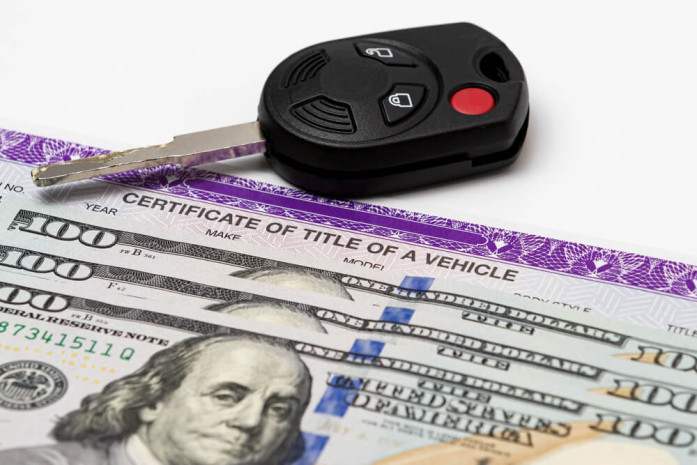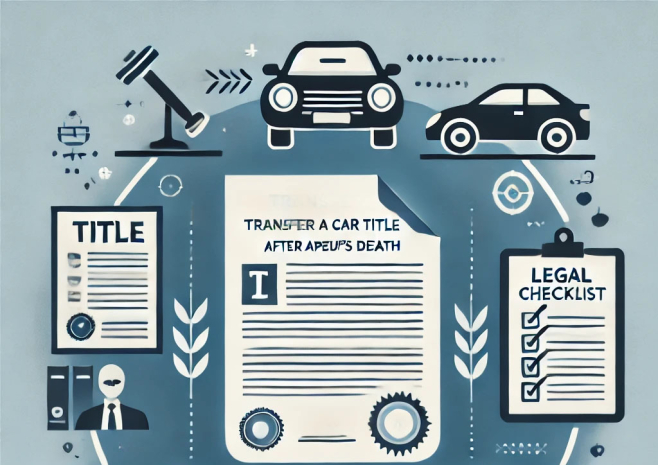If you have a vehicle with a branded title, you may be experiencing the challenges associated with its sale. One of the cons of branded titles is that a lot of buyers get nervous when they hear about it. So, it can make your car harder to sell.
But here's the thing: understanding what your branded ownership certificate actually means and knowing your selling options can help you get a fair price for your car, even if it doesn’t run anymore.
What Is a Branded Title?
When a person buys a new car or a used one without any major incidents, it typically comes with a "clean" title with no marks or notes. But a branded title car means it had seen some significant damage in its lifetime.
Such a vehicle might have been involved in an accident, been through a flood or hail, have structural or mechanical integrity issues that aren’t easy to fix, and, as a result, have been declared a total loss by an insurance company. Whatever the case, that "brand" is a permanent part of a car’s ownership certificate.
Sure, such a document can make it a little trickier to sell a vehicle, but you've still got options. There are companies, like JunkCarsUs, who purchase cars with branded titles, and many offer quick cash deals and free towing services.
Differences Between Branded Titles and Salvage Titles
Before we move to different types of brand titles, let's sort something out first. People tend to mix up branded titles and salvage titles, but there's a simple way to understand them.
You can think of "branded title" as a big umbrella term that covers all sorts of special ownership certificate marks. A salvage option is just one type of branded document.
In some cases, these definitions may be used interchangeably and still be correct in a casual conversation, but when it comes to price assessment, the specific type of your title matters.
Types of Branded Titles Explained
Different types give buyers a glimpse into the histories of vehicles with branded ownership certificates, and a particular option can totally impact its value or even tarnish the deal. Here's what you need to know about each branded car title:
- Salvage title: This is the most common branded title in the automotive world. Insurance companies give this to cars they've written off as a total loss. Basically, the damage was so severe that fixing it would cost more than what the vehicle's actually worth. But it doesn't mean the auto can’t be fixed — it just means it wasn't worth it to the insurance company;
- Rebuilt or reconstructed title: If someone brings a salvage car back to life and it passes a safety inspection, it earns this ownership certificate type. While a vehicle is completely legal to drive and might be in great condition, its resale value will be lower than an auto with a clean title;
- Lemon law title: This title applies to new cars that have a persistent major problem. If the dealership tries to repair a serious issue multiple times but fails to resolve it, and the problem makes the vehicle unsafe, unreliable, or hard to drive, it gets labeled a "lemon." Each state has specific lemon laws that dictate the criteria for this designation;
- Flood or water damage title: If a car ends up in deep water, it gets this ownership document type. Water damage can affect many parts of the vehicle, from electrical systems and overall mechanical integrity to interior materials. States require that if an automobile has had extensive damage, this must be disclosed;
- Hail damage title: This branded title indicates that the car was damaged in hail storms. Usually, these vehicles run fine since the damage is just on the outside — think dents on the hood, roof, and doors. They just look a bit beaten up, which lowers their worth;
- Odometer rollback title: This means someone changed the mileage reading on the car trying to make it look like it hasn't been driven as much as it really has. This is one of the worst title brands because it shows someone has tried to trick future owners about the vehicle's real condition.
How Branded Titles Are Assigned?
The process starts with your insurance company. They look at your damaged car and do calculations of its worth. As we’ve mentioned, if the repair costs are going to be more than what your car's actually worth, they will call it a total loss.
This declaration sets off a chain of events. Your insurance company reports the issue to the local Department of Motor Vehicles (DMV). The DMV processes this information and updates the vehicle’s title to reflect its new status. This change is then recorded in state and national databases to ensure transparency for future buyers.
How to Verify If a Car Has a Branded Title
If you are the owner, you probably already know the auto’s title status. But maybe you inherited a vehicle, bought one without the right paperwork, or lost your ownership certificate. It happens! Here’s how you can check your car's title status.
Review Vehicle History Reports
A used vehicle history report is a great first step. Just take your car's vehicle identification number (VIN) and enter it into websites like Carfax or AutoCheck.
These services will use this number to create a detailed report that shows what title brands your auto has had, any accidents it’s been in, if the car has ever had its odometer rolled back, ownership, and service records. Sure, these insights usually come with a fee, but they’re totally worth it when selling or buying a car.
Inspect Physical Title Documents
Your car's title tells you everything you need to know. Just take a look at the front for any noticeable marks — that’s how you can know if it has a brand on it. Sometimes, ownership certificates get damaged or lost, but you can get a new copy from your DMV for a fee. It will have the same branding as the one you lost.
Consult State DMV Records
The DMV keeps track of everything about your car's title. You can check its records in person, by mail, or online. Actually, many states now have digital portals where you can enter your VIN number and view the necessary information. Each method might have different fees and processing times, but all will give you official data on your vehicle's ownership document status.
State Variations in Title Branding
Each state looks at car damage differently. This can impact how much your auto is worth and how easy it is for you to sell it in a particular state.
Differences in Branding Laws by State
Different states have their own rules on what counts as a “salvage” vehicle. Some states, like Nevada, say a car is salvaged when repair costs hit 65% of its value, while in Florida, the threshold is higher — 80%. So, something that’s considered “junk” in one state might just be labeled as “salvage” in another.
Interstate Title Branding Issues
Plus, title brand definitions vary across states. For example, some states like Texas have unique designations for hail damage, while others may simply categorize it as “salvage.” And inspection rules can vary a lot — what’s considered “rebuilt” in one state might not pass in another.
How to Remove or Clear a Branded Title?
Let's get straight to it — a branded title mark cannot be erased. Once your vehicle gets a branded ownership certificate, this record stays forever in its history.
Unscrupulous sellers even try buying a clean title from another car and switching VIN numbers to handle this issue. However, as you may guess, it's completely illegal to do so.
So, what’s the best decision you can make if your insurance company has declared a total loss of your vehicle? The best you can do is move up from salvage to rebuilt status. You can achieve this by fixing up your car and passing state inspections. While it's still a branded title, "rebuilt" sounds to buyers better than "salvage."
Next, keep your maintenance records handy. These documents show you've taken care of the auto, which is often more appealing to buyers than the title status itself.
If you’re ready to go the extra mile, opt for certified mechanic services and an independent inspection to get a report on your current vehicle’s condition. This will let buyers feel more confident about their purchase.




